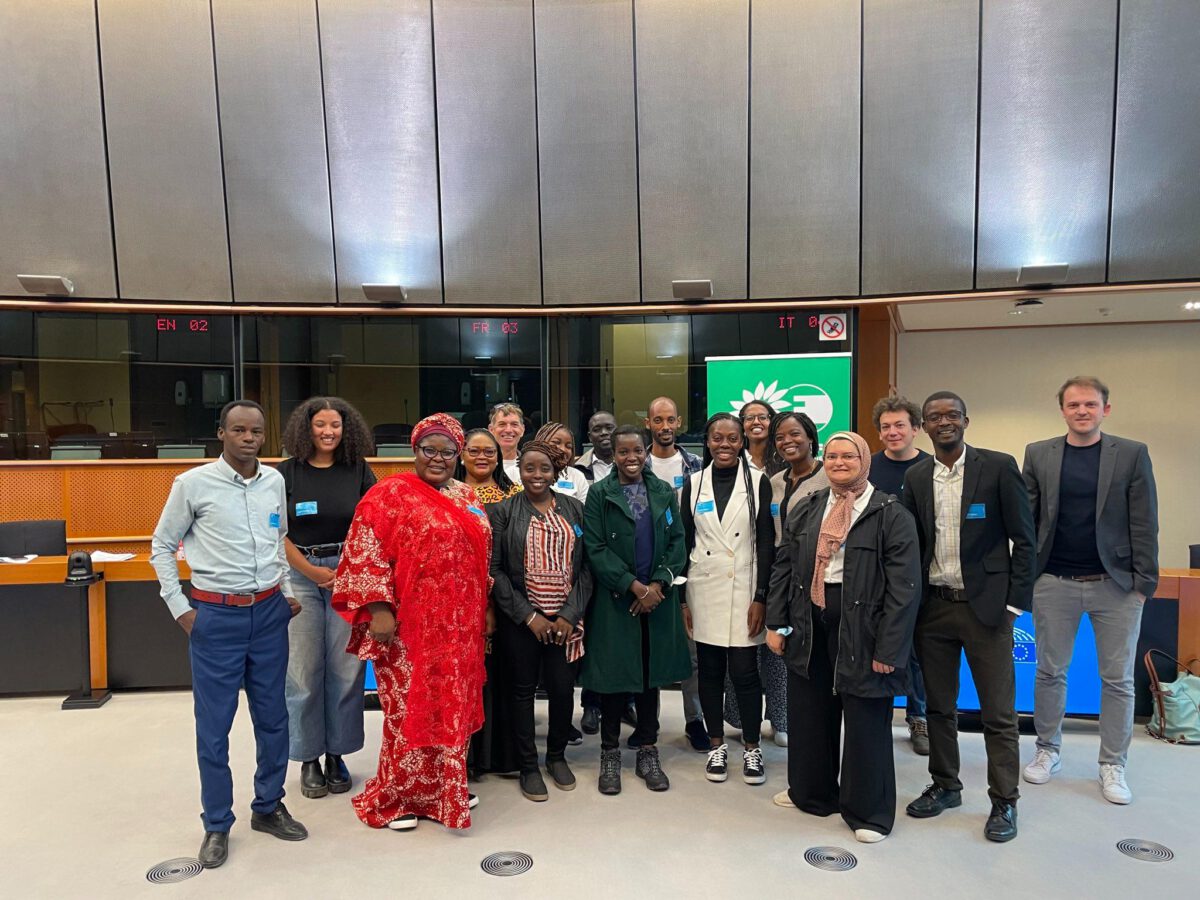African journalists visiting Brussels

In the course of a program of taz Panter Foundation I invited 16 journalists from 15 African countries to Brussels for two days of programming to explore the city, ask questions about the EU, visit the European Parliament, and network with various NGOs. As part of the Foundation's program, the journalists also produced a magazine, which you can download at here and download them.
At the request of the participants, corruption and the fight against corruption in the EU was a central theme, and so the program also began with Transparency International presented her work. This was followed by a lively discussion on corruption in Nigeria, Kenya, Cameroon, South Africa, Somalia, Rwanda and Senegal, in which the participants contributed their different perspectives and expertise. The participants exchanged views on specific problems in the different countries and what difficulties exist both at the level of legislation and enforcement of rules.
How to make development cooperation closer to civil society?
This was followed by Act Alliance and DSW representing the umbrella organization CONCORD a discussion on development cooperation and relations between the EU and the African Union (AU). Another topic was the negative effects of the externalization of European migration and isolation policies in Africa.
Appropriately, the participants then exchanged their views with ECRE about European migration and asylum policy and the reality at the European external borders, including the numerous pushbacks in various EU member states. Another topic was the plans to deploy Frontex also in African countries like the Senegal to use. It was also about the so-called "Partnership for Migration and Economic Development" between Rwanda and Great Britain, which by relocating asylum seekers from Great Britain to Rwanda goes a considerable step further than previous agreements to outsource European asylum and migration issues to the African continent. For me, the agreement between Great Britain and Rwanda is unacceptable because it de facto undermines the individual right to asylum.
Exchange about my work as a member of parliament
On Tuesday, I gave the group a brief introduction to my work in the European Parliament's Development and Home Affairs Committee. Here we talked again about the linking of funds for development cooperation and migration prevention, but especially the situation in the Mediterranean. Here we also talked about the cooperation of Frontex with the Libyan coast guard.
Our exchange was again about the fact that the EU, despite a very manageable number of refugees and migrants from the African continent, pursues a very restrictive policy, which unfortunately does not focus on the protection of human rights. This also leads to the fact that an enormous amount of money in the EU is only used for the isolation policy and repatriation, which could be used much more sensibly for the support of refugees in Europe.
Brain Drain
Another topic was the immense brain drain from Africa to Europe. I was particularly interested in the solutions proposed by the workshop participants and the measures already in place in some African countries to prevent brain drain.
My colleague Daniel Freund also gave another presentation in which he talked about his work on fighting corruption in the EU and in the subsequent conversation experiences from Africa and Europe were compared, whereby it became clear that the underlying logics of corruption are very similar culturally independent.
Thanks to the experiences and reports of the journalists from 15 African countries, I learned many new perspectives and was able to talk concretely with people who live on the ground about the effects of European asylum and migration policies. It was a very exciting meeting and I hope to stay in contact with some of the journalists in the future.